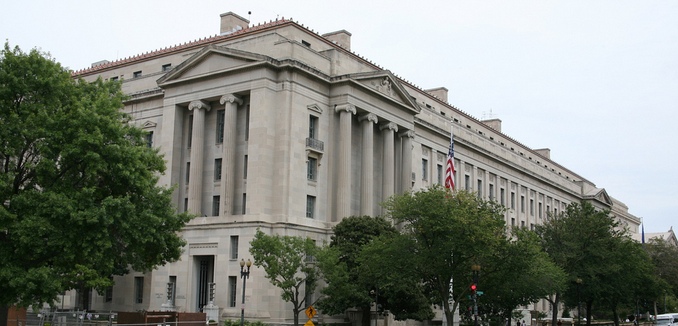The CEO of an American metallurgical firm was arrested on charges of illegally smuggling metals to Iran that could be used for aerospace, missile, and even nuclear use, the U.S. Department of Justice announced Tuesday.
Erdal Kuyumcu, the CEO of Global Metallurgy LLC, allegedly exported cobalt-nickel powder to Iran twice without first obtaining proper licensing from the U.S. Treasury Department, which oversees the many sanctions that are still in place on Iran. The Justice Department also alleged that “Kuyumcu and others conspired to obtain over a thousand pounds of the metallic powder from a U.S.-based supplier for export to Iran” via Turkey, and that Kuyumcu and his associates “used coded language when discussing Iran, such as calling Iran the ‘Neighbor,’ referring to the fact that Turkey shares a border with Iran.”
“In circumventing U.S. law, including the International Emergency Economic Powers Act, the defendant harmed our nation’s security,” Assistant Attorney General for National Security John P. Carlin said in a statement. “The department will continue to vigorously pursue and hold accountable those who evade our export laws in pursuit of profit.”
In Iran is Really Good at Evading Sanctions, which was published in the September 2013 issue of The Tower Magazine, Emanuele Ottolenghi explained how Iran often sets up shell companies to obtain dual-use technologies that can be used for its illicit nuclear and missile programs.
A good illustration of how Iran bypasses sanctions is the regime’s activities in the German city of Düsseldorf and its environs. Düsseldorf is the capital city of the state of North Rhine-Westphalia, which sits astride a sinuous curve of the Rhine, Germany’s longest river and a major north-south waterway. Many of Germany’s most industrialized and prosperous cities lie along its banks.
Some of Germany’s best technology is produced here. Concentrated in a relatively small region, thousands of medium and small-sized family-run companies invent, assemble, produce, and sell some of the best machinery and industrial products in the world. It is an ideal place to go shopping for “dual-use” components—materials that are necessary for the manufacture of nuclear weapons but can also be used for civilian purposes, thus giving the purchaser plausible deniability.
Iran has established a dizzying array of front companies from Düsseldorf in the west to Frankfurt—Germany’s financial capital—in the south. Because most of these companies open and close within a matter of months, leaving little or no paper trail, it is difficult to say exactly what they do. Even when they last for a reasonable amount of time, they tend to operate under the radar, often based in the homes of their managers, with only scant information available to the public. Nonetheless, many of them seem to be engaged in industrial procurement, including, allegedly, for Iran’s nuclear and ballistic missile programs.
[Photo: Cliff / Flickr ]




